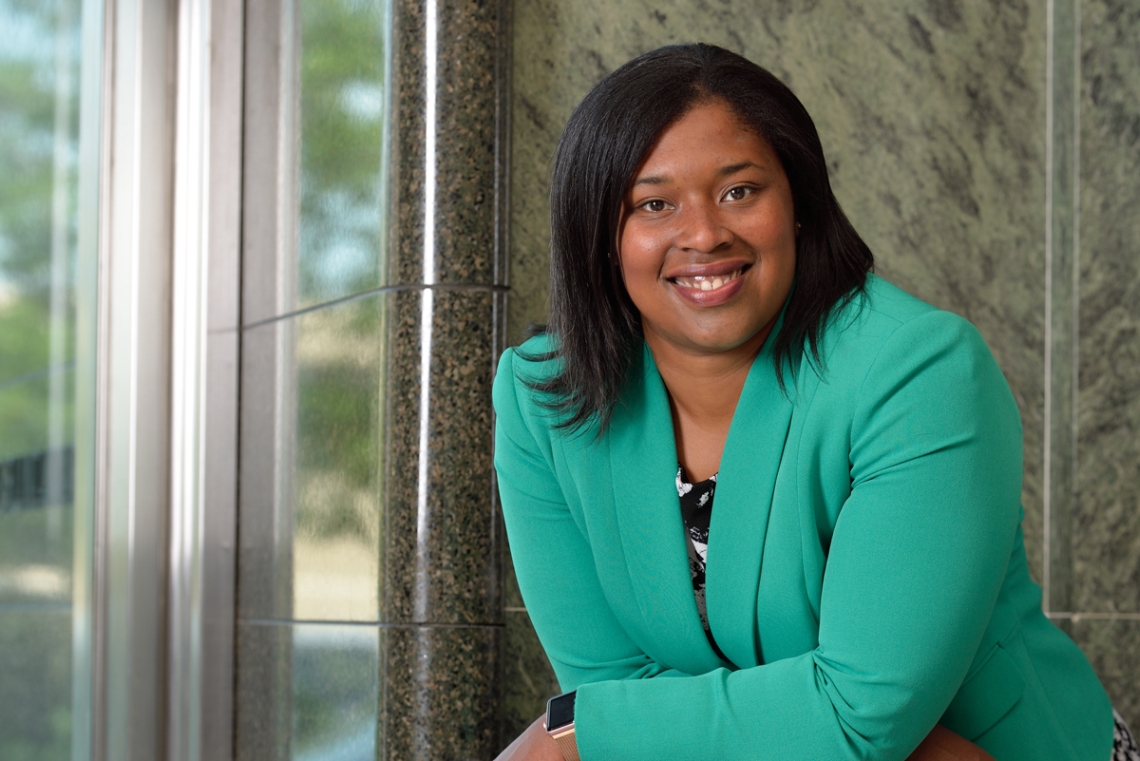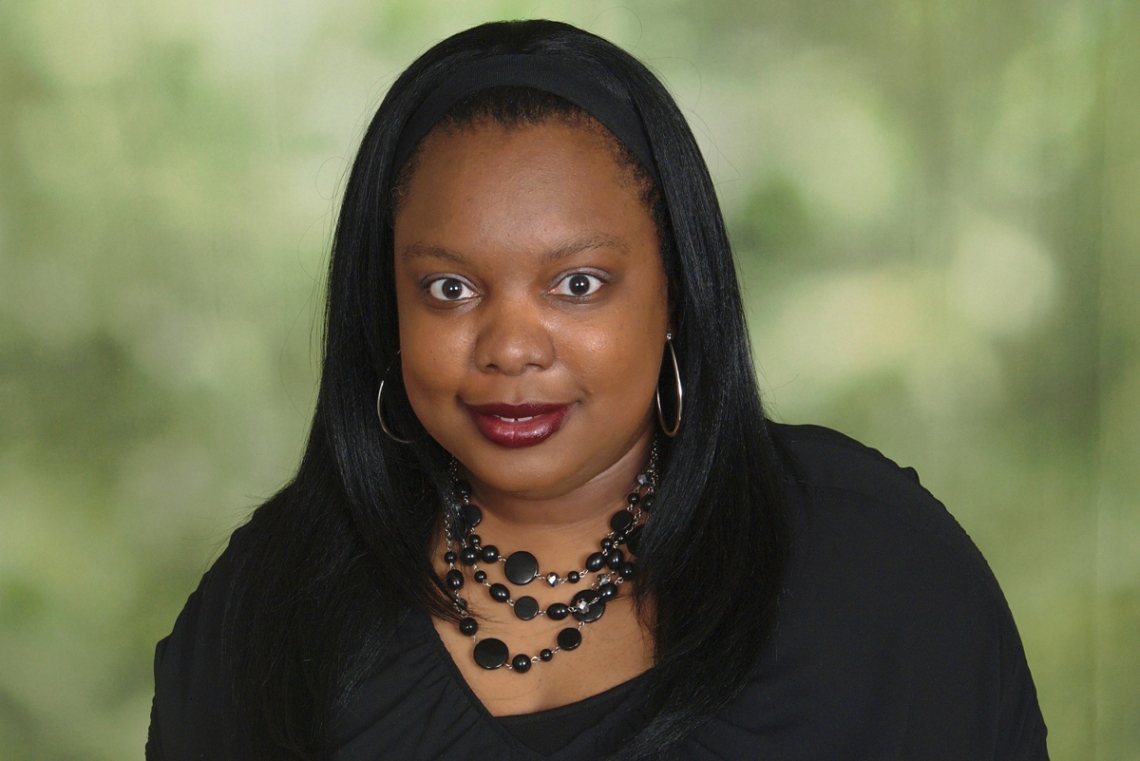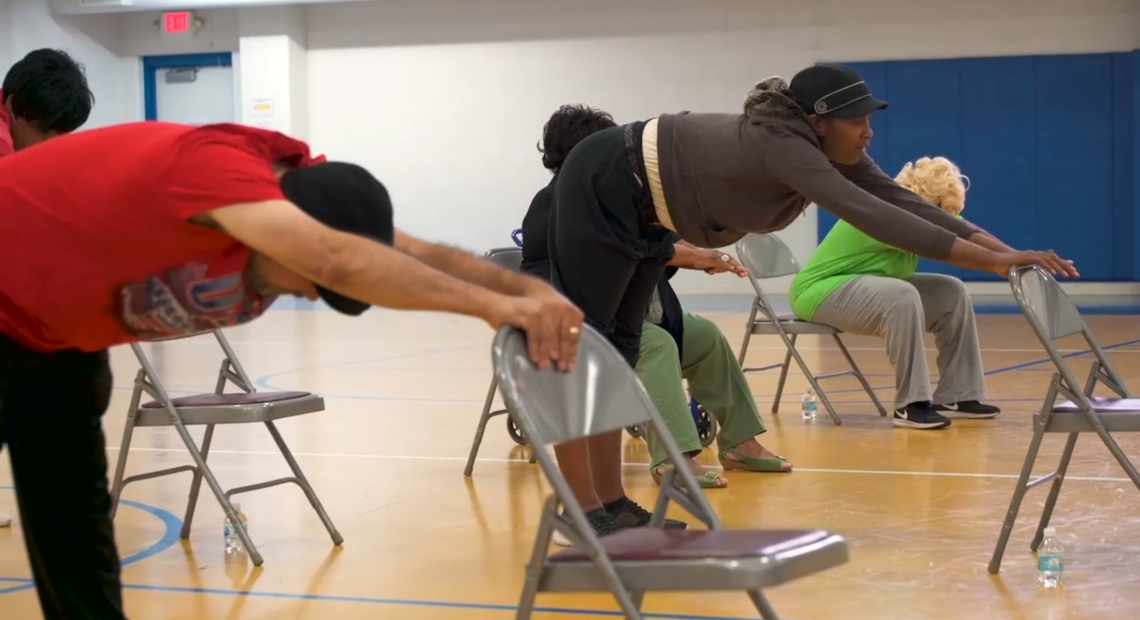The Church Challenge: Improving Health and Well-being in the Flint Community
- Vicki Johnson-Lawrence, Ph.D.
- Assistant Professor
- Rodlescia Sneed, Ph.D.
- Assistant Professor
- Division of Public Health
- College of Human Medicine

New Jerusalem Full Gospel Baptist Church
In a community lacking some of the most essential needs in life there is one thing that Flint residents have in abundance, and that is faith.
Participation in congregations and faith-based organizations (FBOs) is strong in this predominantly African American city and serves as an important component of the community's social fabric.
During the past thirty years, public health officials and FBO leaders alike have increasingly explored the value of working together to address the needs of their constituents.
One of the most pressing needs in Flint and the surrounding community is to improve the physical and mental health of the people. The Flint community has weathered numerous public traumas (one of the most recent being the Flint water crisis) that have contributed to racial, economic, education, and health disparities.
The MSU Division of Public Health is in the College of Human Medicine's Flint campus and stands in partnership and collaboration with the community when confronting the challenges residents face.
In 2016, in response to much of the trauma experienced by the Flint community, the Flint Center for Health Equity Solutions was established within the Division of Public Health and funded by the National Institute on Minority Health and Health Disparities (NIMHD). It serves as a transdisciplinary collaborative center, promoting research studies that address both physical and mental health.
Interventions to Promote and Sustain Health Equity and Well-being for African Americans
Public health officials and community leaders alike recognized that residents were coping with myriad factors that deter self-care. The Church Challenge is a physical fitness and nutrition intervention, developed and piloted in the Flint community "by pastors and congregations in primarily African American churches, for primarily African American congregations."

Dr. Johnson-Lawrence is a social epidemiologist and community-based researcher who examines the health of residents in vulnerable communities.
Vicki Johnson-Lawrence is the lead investigator for the Church Challenge. She is a social epidemiologist and community-based researcher who examines the health of residents in vulnerable communities where people are impacted by complex individual and collective stressors.
Rodlescia Sneed is a co-investigator on the Church Challenge team. She is a social and health psychologist who utilizes community-engaged approaches to understand how chronic disease prevention and intervention efforts work best among older adults in community settings.

Dr. Sneed uses community-engaged approaches to understand how chronic disease prevention and intervention efforts work best among older adults in community settings.
Johnson-Lawrence and Sneed work with an interdisciplinary team of partners with expertise in church and FBO leadership, human services, public health, fitness instruction, and health services.
Their goal is to identify and address the factors that contribute to chronic disease risks, and work with the community to implement programs that help people begin, and then continue, sustainable healthy behaviors.
The initial Church Challenge was led by the Community Outreach for Family and Youth (COFY) Center, New Jerusalem Full Gospel Baptist Church, Bridges Into the Future, and other members of the Flint faith community and centered around competitive weight loss efforts for African American adults in Flint.
Community, Church, and Individual Levels
The Church Challenge was developed using community-based participatory approaches and is rooted in the original program. Their mission is to support and improve the health of the Flint community.
Described as a three-level intervention, the work addresses health at the community level, church level, and individual level. The goal is to reduce blood pressure, reduce chronic disease risk, and promote health equity and well-being in Flint.
A major focus is hypertension management and reduction. It is well established that African American men and women have higher rates of risk associated with high blood pressure. While hypertension can be a silent disease, the impacts are severe, including stroke, congestive heart failure, and kidney failure.
Noting that successful programs incorporate multiple lifestyle changes to improve health, the consortium partners have created opportunities for diet and nutrition, physical activity, safe environments for physical fitness, stress management, chronic disease management, and strategies for living a healthier lifestyle.

New Jerusalem Full Gospel Baptist Church exercise group.
The researchers and church members work together closely to continually observe, support or refine the necessary steps to meet both individual and church goals.
Impacts of the Coronavirus Pandemic
COVID-19 has greatly impacted the Flint community and the Church Challenge is no exception. With social distancing mandates, in-person group activities (a key component of the project) are simply not possible. Further, the Flint faith community has experienced significant grief and loss, as many church leaders and their congregation members have been lost to the pandemic. Those who remain find themselves now tasked with attending to the mental and physical needs of their friends, families, and others around them.
In March, Church Challenge leaders started an initiative called Church Challenge Cares to respond to the needs of the local faith community. Church Challenge Cares offers supportive listening sessions to pastors and health team members, with a goal of reducing distress and offering public health guidance to church members. It also includes a monthly "Church Chat," a virtual platform where local experts share their knowledge on issues relevant to the faith community during this time. Topics have included Going Back to School during COVID-19, Chronic Disease Management during a Pandemic, and Faith and Health Policy.
Conclusion
According to Johnson-Lawrence and Sneed, the work being done by the Church Challenge team is "highly significant and innovative because it uses a combination of evidence-based practices simultaneously supporting health behavior change for individuals and their faith organizations, and evaluates multilevel efforts to sustain long-term health promotion activities in vulnerable communities like Flint."
Source
Johnson-Lawrence, V., Bailey, S., Sanders, P. E., Sneed, R., Angel-Vincent, A., Brewer, A., Key, K., Lewis, E. Y., & Johnson, J. E. (2019). The Church Challenge: A community based multilevel cluster randomized controlled trial to
improve blood pressure and wellness in African American churches in Flint, Michigan. Contemp. Clin. Trials Commun. 14:100329. Published online 2019 Feb 2. doi: 10.1016/j.conctc.2019.100329
- Written by Carla Hills, University Outreach and Engagement
- Photographs courtesy of Flint Center for Health Equity Solutions and MSU College of Human Medicine-Division of Public Health